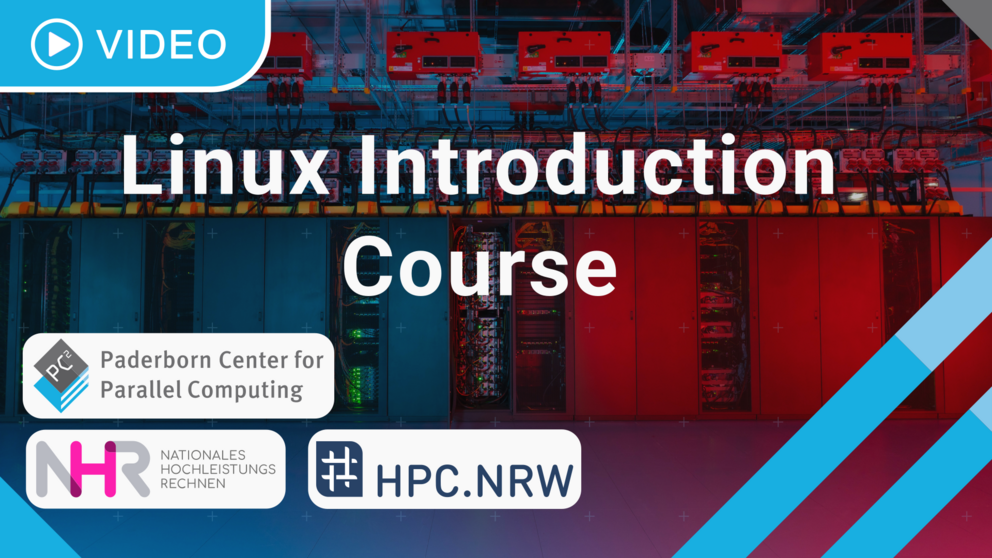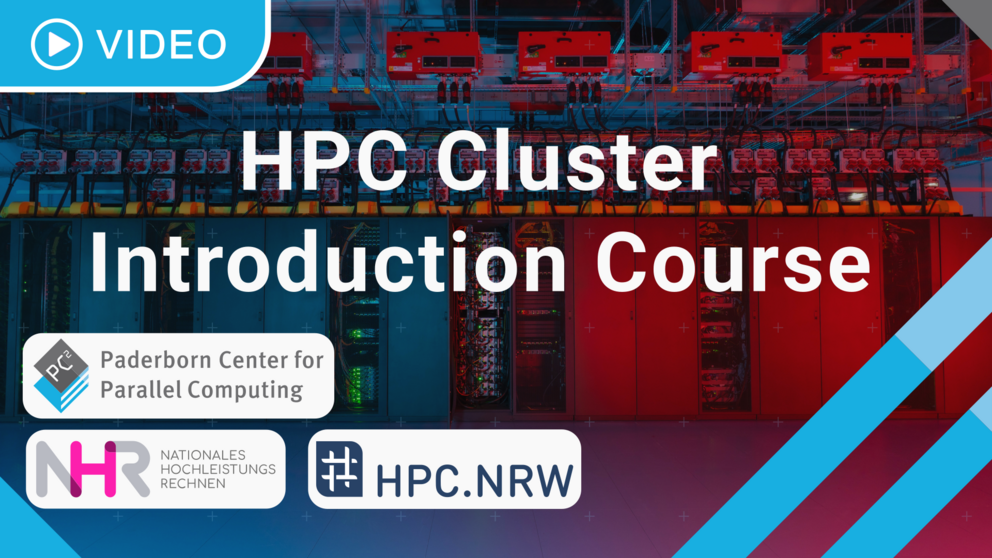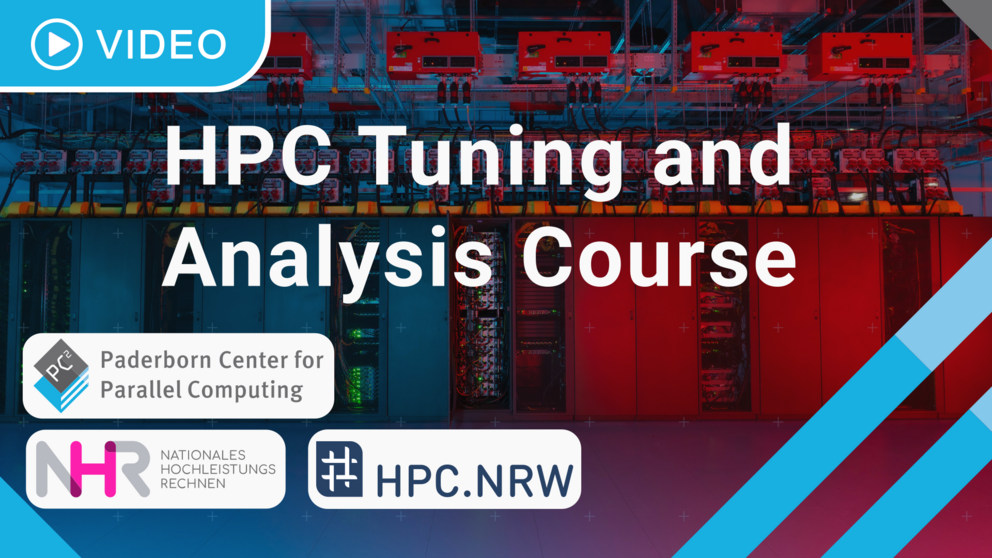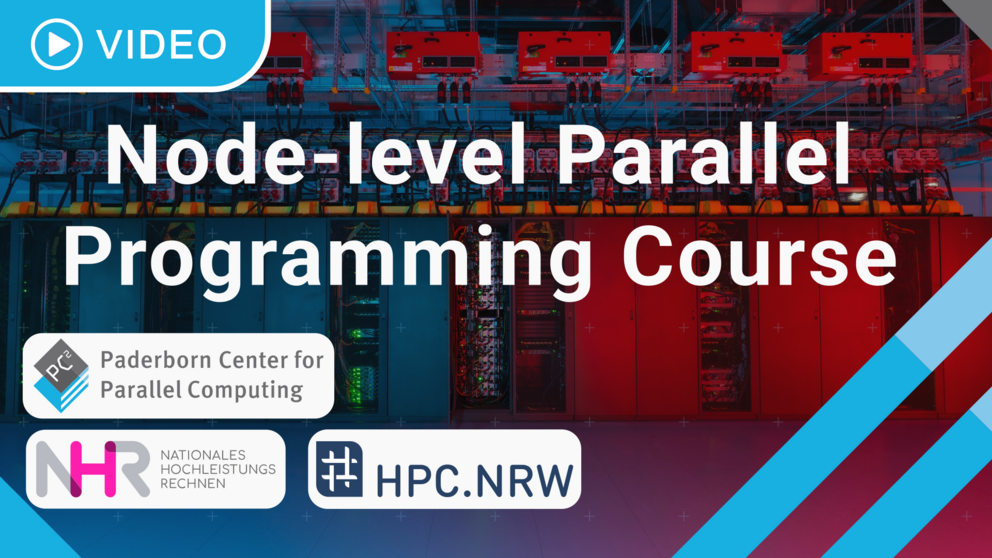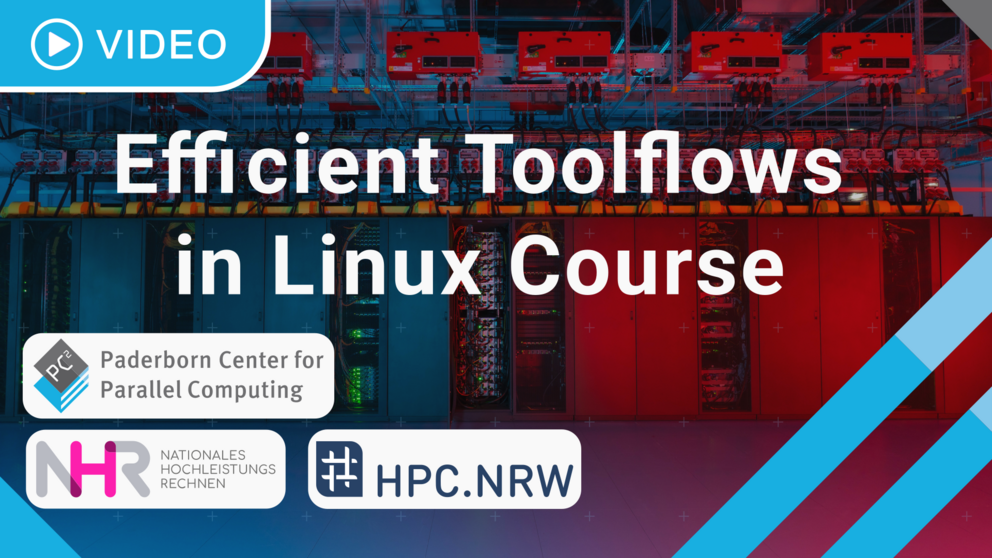Introductions to Otus
With the opening of the new HPC system Otus at PC2 in September 2025, we offered a series of short introduction events.
User and Developer Training
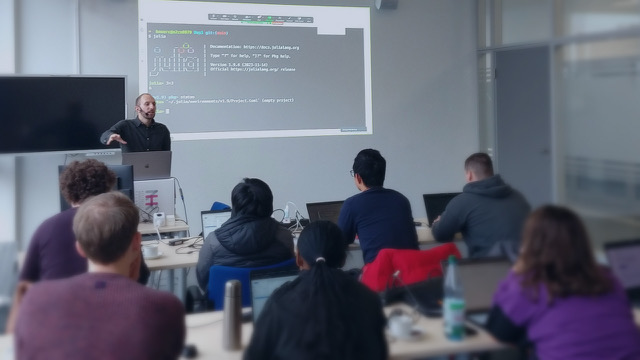
We regularily offer introductory, intermediate, and advanced HPC Training Events for current and potential future users of our supercomputing infrastructure. Unless communicated otherwise, all our courses are free of charge for members of German universities or publically-funded research institutions in Germany.
If you have questions, please feel free to reach out to us via pc2-support@uni-paderborn.de.
HPC Course Ladder
In our course canon, each course builds on the previous one, and the first course is explicitly designed for HPC beginners. Feel free to start with a course matching your experience (we provide quick self-tests on the course pages to help you assess your prior knowledge).
- Linux Introduction Course
- Target audience: users with little to no prior Linux expertise
- Duration: one afternoon
- Next course, all future courses
- ▶️ Watch Recording of past session on YouTube
- HPC Cluster Introduction Course
- Target audience: users with basic Linux experience and want to use the computing resources available at PC2
- Duration: one afternoon
- Next course, all future courses
- ▶️ Watch Recording of past session on YouTube
- HPC Tuning and Analysis
- Target audience: users that want to dive deeper and learn about HPC cluster architecture, efficient execution of parallel programs, HPC job monitoring, and more
- Duration: one afternoon
- Next course, all future courses
- ▶️ Watch Recording of past session on YouTube
Moreover, we offer individual events and course series that have a specific focus, such as Julia programming for HPC and efficient neural network inference on FPGAs. For further information, check out our overview of upcoming Focused Training courses.
If you think that a special training on a certain topic would be of high value to you and other users, feel free to suggest it to us.
Recordings of Basic Training Courses
Recordings of Focused Trainings
Open Consultation Hour
To discuss individual technical or scientific questions, a personal consultation is often more effective than email support. We therefore offer regular open consultation hours (every Thursday at 13:00 PM), where users have access to consultations without prior appointment, in which basic questions can be clarified directly and, if necessary, follow-up appointments can be arranged. Typical questions discussed in these consultation hours are
- Individual issues with system access and software installation
- Design of research group-specific workflows
- Mangement of research data (transfer, post-processing, archival)
In addition, we also collaborate with other national HPC centers in offering topic-specific consultation hours and webinars, for example on how to use our systems effectively for AI applications.
Scientific Consulting and Intensive Support

The scientific support staff at PC2 can support you for example with:
- compute time proposals
- organization of development workflows for your scientific code like version control, continuous testing/continuous benchmarking/continuous integration,...
- support with the organization of a developer community with, for example, regular developer meetings
- code porting, debugging, optimization,...
- algorithm design, development, implementation, and benchmarking
- performance modelling
- workflow organization and research data management
- organization of scientific events like conferences and workshops
- provide HPC resources and tailored software environments for scientific workshops
If we can support you, please let us know via mail, visit our consultation weekly hour, or let us knows during one or our courses, events, or conferences.
Selected projects that align with research focus of PC2, for example in atomistic simulations, computational physics and chemistry, or the use of FPGA and GPUs hardware accelerators, may also receive dedicated intensive support by the HPC and application experts of PC2. This type of support typically takes place within the framework of a longer collaboration, which, in addition to technical support, also includes scientific objectives and the joint further development of methods, simulation software or the development of services.
Some Examples from recent joint reserach within intensive support projects are:
- On-the-fly machine learned potentials for efficient ab-initio molecular dynamics (https://www.nhr-verein.de/en/AIC)
- PHOENIX: CPU/GPU-Solver for nonlinear two-dimensional Schrodinger equations of polariton condensates on CPUs and GPUs (paper, code)
- ExaXtb: Large-Scale parallelization and GPU-acceleration of linear-scaling density matrix tight-binding approaches with the submatrix framework (PoC code)
- Solving general minimizations problems with continuous-variable QAOA approaches on photonic quantum computers
- Quantum machine learning with photonic quantum computers
- Accelerating machine learning-based text classification for tax related research
- Development of scalable global and local submatrix methods for linear-scaling density functional theory
- Algorithm development for quantum chemistry on noisy intermediate-scale quantum computers (Paper)
- Accelerating the Compuation of Electron Repulsion Integrals with FPGAs (Paper)
- Developement of highly-scalable algorithms for quantum detector tomography (Paper)
- Characterizing Microheterogeneity in Liquid Mixtures via Local Density Fluctuations (Paper)
- Accelerating Shallow Water Simulations with CPUs, GPUs, and FPGAs (Paper, Paper, Paper)
- FPGA Acceleration for HPC Supercapacitor Simulations (Paper)
- Multi-GPU Lattice code for QCD calcualtions (Paper)
- Mutation Tree Reconstruction of Tumor Cells (Paper)

